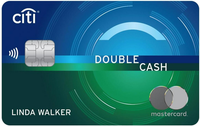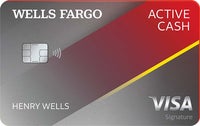Best credit cards for bills and utility payments

Most people have bills and utilities to pay every month. While many people pay these bills directly from their checking accounts or with a debit card, you can also use credit cards.
One of the easiest ways to maximize your credit card rewards is to use cards for everyday spending to earn the most points or cash back in your most common categories. This includes your regular bills and utilities. Identifying where you’ll get the most rewards when you pay your monthly bills with a credit card is a great way to boost your earnings on the money you’re already spending.
Top cards for bills and utility payments

Citi Double Cash® Card

Blue Cash Preferred® Card from American Express

Wells Fargo Active Cash® Card
Bank of America® Customized Cash Rewards Secured Credit Card*
Comparing the best cards for bills and utility payments
| Card name | Best for | Highlights | Annual fee | Recommended credit score |
| Citi Double Cash® Card | Flat-rate cash back | 2% cash back on all purchases (1% when you buy, 1% when you pay) | $0 | 670–850 |
| Blue Cash Preferred® Card from American Express | Groceries and streaming services |
6% cash back on U.S. supermarkets (up to $6,000 per year, then 1%) 6% cash back on select U.S. streaming subscriptions 3% cash back at U.S. gas stations and transit services |
$0 intro annual fee for the first year, then $95. | Good to excellent |
| Wells Fargo Active Cash® Card | Cellphone bills | 2% cash rewards on purchases | $0 | 670–850 |
| Bank of America® Customized Cash Rewards Secured Credit Card* | Bad credit |
3% cash back in a category of your choosing 2% cash back at grocery stores and wholesale clubs (up to $2,500 in combined 2% and 3% category purchases, then 1%) |
$0 | No credit history |
How to choose the best card for bills and utility payments
While you don’t have much control over your recurring bills and utilities, what you can control is how you choose to pay them. Note, however, that some utility companies may charge convenience fees for paying with a credit card. Make sure that you’ll be able to offset it with rewards before you pay with a credit card.
No one card will be the correct answer for all of your bills and utilities since they all offer different bonuses and incentives. Here are some things to consider when deciding which card might work best for you:
Choose cash back, points or miles
When choosing the best rewards card for you, decide if you want points, miles or cash back. Points and miles offer the potential for booking trips and vacations, but they may lose value if you try to redeem them for cash back.
Cash back is more straightforward. You’ll earn a percentage of your spending back and can watch that cash back accumulate in your account, knowing it won’t change in value. You can usually redeem those cash back earnings as a statement credit or direct deposit, but you usually need a more complicated plan to redeem points and miles. If you’re just starting out with credit cards, cash back cards are likely your best option.
Run the numbers: fees vs. rewards
You’ll want to calculate the value of points or cash back earned, then subtract any convenience or processing fees. It’s worth it to pay bills and utilities with a credit card if it earns at least 3% cash back for that spending. For example, if your gas bill company applies a 2% processing fee for credit card charges and your card earns 5% back on utilities, you’ll earn a net 3% cash back.
Other fees and charges can quickly erase the value of your rewards, so consider annual fees, ongoing APRs and intro offers when making your decision.
Other benefits
Consider extra benefits and protections a card gives you when paying your bills and utilities, like cell phone protection and streaming credits. Paying these everyday expenses with a card that has elevated rewards and extra benefits is ideal.
How Bankrate staff maximize their utility and bill payments
Bankrate staff insights
What’s next?
The bottom line
Paying your regular bills and utilities can earn plenty of rewards if you’re using the right credit card. Finding the right combination for you can put significant rewards and savings back in your pocket. Just be sure to pay your balance off in full each month, because credit cards charge high interest rates, even to those with the best credit scores. If you can make your payments and the rewards outweigh the fees, you’ll surely come out ahead when paying your everyday recurring expenses.
*The information about the Bank of America® Customized Cash Rewards Secured Credit Card and Fidelity® Rewards Visa Signature® Credit Card has been collected independently by Bankrate.com. The card details have not been reviewed or approved by the card issuer.
The Bank of America content in this post was last updated on Jan. 6, 2026.
Why we ask for feedback Your feedback helps us improve our content and services. It takes less than a minute to complete.
Your responses are anonymous and will only be used for improving our website.










